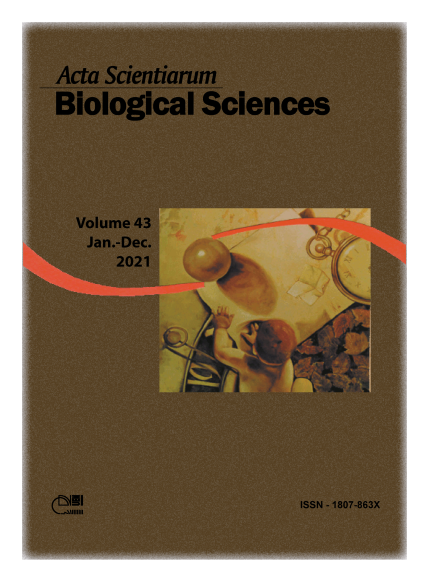In vivo and in vitro prospection of the anti-ophidic properties exercised by the extracts of Jacaranda decurrens L.
Abstract
The research and development of alternative treatments for snakebites (e.g., medicinal plants) is necessary due to the high costs of the existing ones. The effects of the aqueous extracts from Jacaranda decurrens leaves, roots, and xylopodium were analyzed upon the venom-induced (Bothrops spp. and Crotalus spp.) systemic and local toxicity. The extracts were able to partially inhibit the phospholipase activity of the venoms from Bothrops jararacussu and Crotalus durissus terrificus. The myotoxic, edema-inducing, coagulant, and hemorrhagic activities were also inhibited. The SDS-PAGE showed that the venom proteins were intact after their incubation with the extracts. This suggests that the possible mechanism of inhibition is not related to the degradation of the protein but rather to their binding to specific sites of the enzymes. The extracts significantly prolonged the survival time of animals in the lethality assay performed with Crotalus durissus terrificus venom and its toxin (crotoxin). The anti-ophidic activity of medicinal plants may aid in the management of snakebites in distant locations by reducing the victim’s local effects and time to heal.
Downloads
DECLARATION OF ORIGINALITY AND COPYRIGHTS
I Declare that current article is original and has not been submitted for publication, in part or in whole, to any other national or international journal.
The copyrights belong exclusively to the authors. Published content is licensed under Creative Commons Attribution 4.0 (CC BY 4.0) guidelines, which allows sharing (copy and distribution of the material in any medium or format) and adaptation (remix, transform, and build upon the material) for any purpose, even commercially, under the terms of attribution.
Read this link for further information on how to use CC BY 4.0 properly.













1.png)




3.png)













